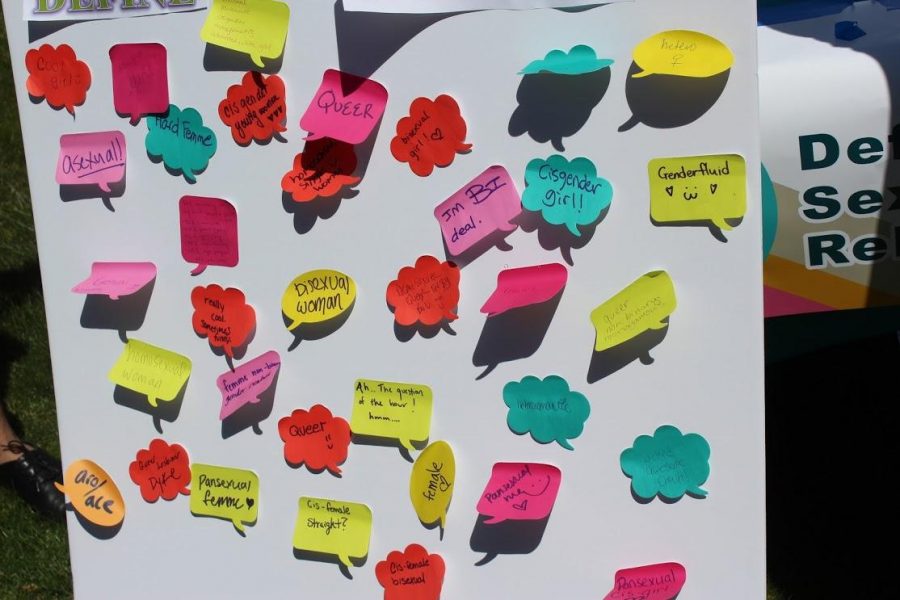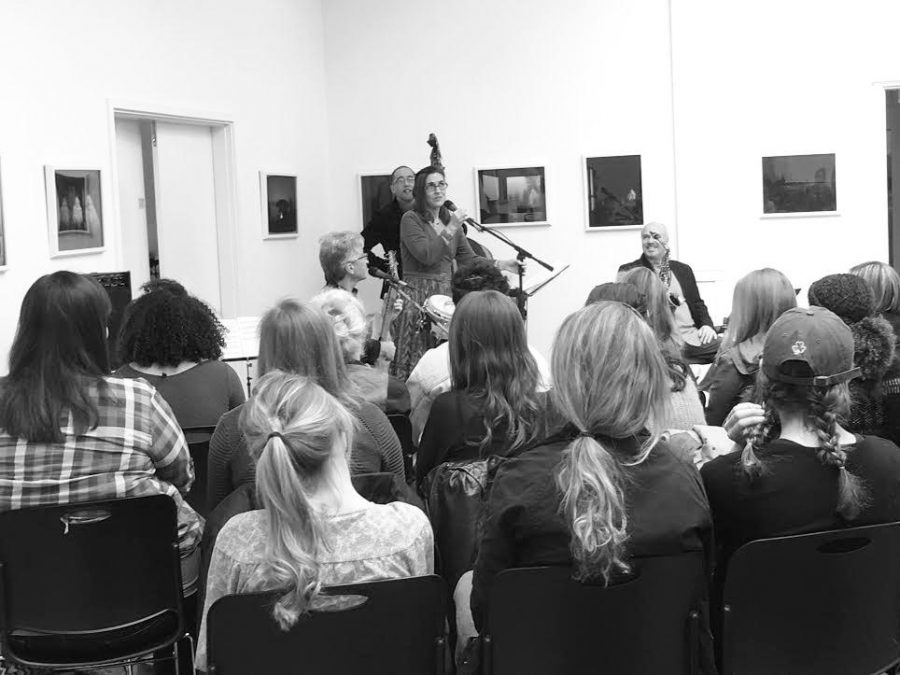By Katie Sittig-Boyd
Staff Writer

Over one hundred faculty, staff, and students gathered in the School of Management to see Dr. Anita Hill at a joint Friars Leaders and Diversity and Inclusion event held last Thursday.
A renowned author and professor, Hill also spoke at last month’s Simmons Leadership Conference, and addressed topics of leadership in her talk this past week.
Following Provost Katie Conboy’s welcoming remarks, Professor Janie Ward introduced Professor Hill, discussing her instrumental role in bringing about social change and addressing topics that affect many women, yet are rarely discussed.
“Women’s accounts of being harassed, assaulted, raped—they are all disbelieved,” said Ward, recounting her experience watching Hill’s testimony back in 1991. “What are the risks and what are the rewards of stepping into that space?”
Following Ward’s introduction, Professor Hill took the podium to address her audience, which was standing-room-only.
“Do we design our leadership or is it a matter of chance?” Hill began. She went on to speak about her early experiences with leadership—not only her own, but also advice she received from other community leaders.
According to Hill, one of the first leadership models she was exposed to was in the form of religious leadership, but she quickly identified a critical shortcoming of this approach.
“This model ignored all the ways women could become leaders,” she said. People may not be perceived as leaders, but they are “still leaders in communities,” according to Hill.
Hill went on to discuss the story of Ada Lois Sipuel Fisher, who sued the law school at the University of Oklahoma in order to enroll in the program. Although she was granted entry, she was sequestered in the classroom, since she was not only the sole black woman in her classes, but she was also pregnant at the time.
Several decades after her graduation, Fisher was appointed to the Board of Regents at the University of Oklahoma, the same school she had sued almost 40 years prior. Hill emphasized that Fisher did not necessarily have a five- or ten-year “plan for success,” but rather pushed forward in her achievements despite adversity.
“The issue with the ‘lean in’ strategy isn’t being offered assignments, it’s not being offered assignments,” said Hill, speaking to the common “lean in” strategy of leadership for women. “Social structures and cultural factors stop us even more than the ‘decision’ whether to lean in or not ever could.”
Hill’s talk highlighted the factors of marginalization and oppression present in managerial structures. “Leaning in, opting out—these are false choices in many ways, choices which obscure workplace bias and workplace decisions,” said Hill.
Additionally, Hill stressed the importance of language. Rather than calling the phenomenon of bias in the workplace “implicit bias,” she proposed the adoption of the term “unclaimed bias.”
“It’s not subtle to the people who experience it, and its impact is not limited,” Hill said.
Hill also addressed Ellen Pao, who recently lost her high-profile gender discrimination case, as well as the concept of setting leaders up for failure in the context of “crisis”—if people in charge handle “crisis” situations well, Hill said: “If it’s a success, then great, but if it’s a failure, then anyone in power will just use it as an example—‘well, we tried a woman once, and it didn’t work out.’”
Working within current power structures is difficult and draining. “It’s helpful to me to think outside of the current leadership model,” Hill said, “beyond me crashing the gate.”
Another way of approaching leadership is by “creating your own model,” though that is also time- and energy-consuming.
Another form of leadership is leading from within. “We’re not all going to be the president, but everyone can lead,” Hill said. “When we mentor, we are leading.”
Whatever the approach, Hill emphasized that leadership takes many forms. “You’ll find it, but you’ll have to have an open mind to see it,” said Hill of individual approaches to leadership.
Following her talk there was a 30-minute Q&A session, during which Professor Hill discussed how identity factors into being taken seriously. “We need to understand how race plays into our understanding of credibility when it comes to sexual issues,” said Hill.
Furthermore, she added, “Being close to these issues makes us better at helping people. This part of my life evolved and put me in a position where I could do more good for more people than I could in commercial law,” the field in which she began her law career.
When asked about improvements Simmons could make in these areas, Hill suggested a leadership assessment.
“Students, look at leadership,” Hill urged. She also suggested that Simmons conduct qualitative work in addition to a more quantitative approach.
“Colleges send graduates out to work in employment all over the country,” said Hill. “How can you influence those future environments so the graduates don’t end up in a hostile world? We can be a model for everyone, but only if we allow ourselves to be examined.”











